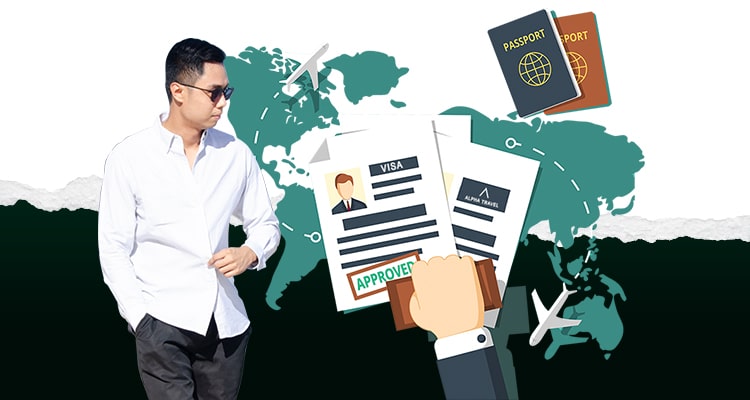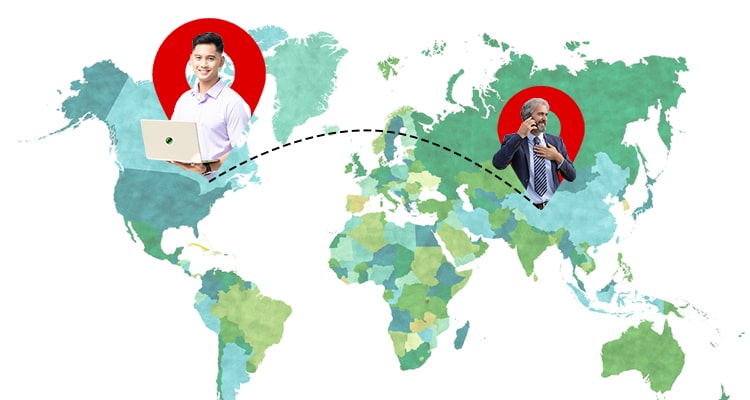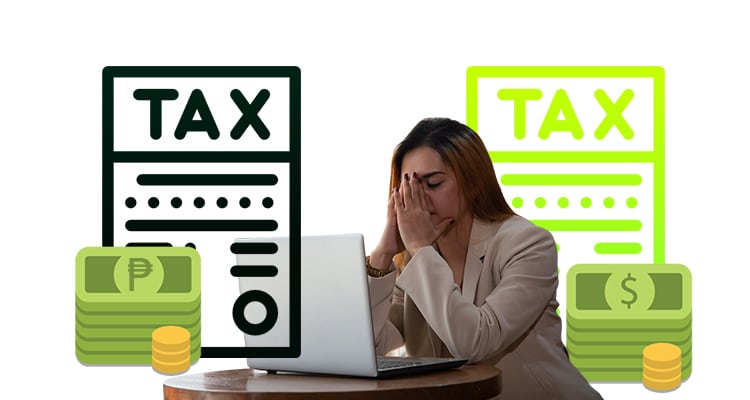Don’t you love remote working? Imagine you can work anywhere you want. You just need your trusty computer and a stable internet connection.
That’s why a lot of Filipinos are embracing the Digital Nomad lifestyle. Travelling the world is now accessible to everyone with an online job and a decent income.
There are even affordable countries you can try out.
But the problem is, the days are limited for tourist visas. For some, 30 days is not enough to explore the country. You do have to balance travelling and working, right?
So some opt to do long-term travel for more than 30 days. That’s where digital nomad visas come in.
What Are Digital Nomad Visas?
Basically, digital nomad visas allow you to legally work in a country. Technically, you aren’t allowed to work on a tourist visa. But no country is implementing it as long as your clients are outside their country.
You can check the list of countries that offer it here.
Countries encourage digital nomads to work in their country for the cash they spend on visa application fees, tourist attraction fees, accommodations, food, and more.
When done right, it can boost their country’s sources of income. Most countries also have minimum income requirements to ensure that you have adequate spending power.
So, why bother getting one? Here are the advantages of getting a digital nomad visa.
DISCLAIMER: This article is for general information only. It is no substitute for professional advice.
Longer Stay for Leisurely Travel
Who wants to rush travelling through a country like they’re recreating the Amazing Race? But not everyone has the luxury of time because of their visa expiration.
Digital nomad visas can span from 90 days to as long as 1 year, depending on the country. This way, you can take your sweet time travelling.
Legally Work in A Country
Another advantage is the legalities. A lot of countries are wary of those who overstay in their country and still manage to work.
Some do it by leaving the country on their last visa day. And then returning after a week or two.
If you’re staying far too long, you might be questioned by immigration. With a digital nomad visa, you avoid those uncomfortable questions.
You Can Legally Rent an Apartment in Some Countries
Not everyone can afford to stay in a hotel for one whole year. Renting an apartment or a house might be a better option. But most landlords can’t legally rent it to you. After all, you’re a tourist.
That changes with a digital nomad visa. Depending on the country, you are allowed to rent an apartment or a house with a digital nomad visa.
Staying in your Base Country for Exploring the Schengen Area
Not all countries inside the EU allow a digital nomad visa. Having a base country is pretty useful when exploring the European Union (EU).
If you get a digital nomad visa, let’s say, in Estonia, you can freely travel to other Schengen countries for a longer duration. You just have to know the limitations.
For Estonia, you can freely travel and stay for up to three months in a Schengen country. Sweet!
Limitations of a Digital Nomad Visa
But do remember that there are still things you should watch out for with a digital nomad visa. Here are some.
You Can’t Have Clients in that Country
Even with a digital nomad visa, some countries don’t allow you to have clients within the nation.
Sure, they want you to spend money in their country. But these countries also don’t want their citizens to lose jobs to foreigners.
So take note, if you’re planning to sign some clients in any country you plan on visiting.
Digital Nomad Visa Not Applicable to Employees
Remote working is a broad term to describe people working online. They can be freelancers or independent contractors who work for other clients but are not considered employees.
And some remote workers are employees who simply work online.
Take note that some countries only allow freelancers and independent contractors a digital nomad visa. So if you’re an employee, better check the requirements if you’re eligible.
Risk of Double Taxation
In some countries, your income will be taxed when you stay for a specific period. For example, you are required to pay income taxes in Estonia when you stay for more than 183 days (roughly 6 months).
If your country doesn’t have a double taxation treaty, you might be liable to pay taxes in Estonia and in your home country as well. Better check for taxation treaties and requirements if you’re planning a long-term stay.
Isn’t it exciting to travel the world? By being a digital nomad, you can start enjoying working for your financial goals while travelling as early as today.
And if you’re looking for a stable remote working job, you can sign up through Remote Staff.
Remote Staff offers long-term remote online jobs that can be a gateway to your ideal digital nomad lifestyle. Good luck and have fun travelling! Cheers!










